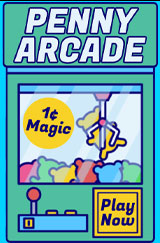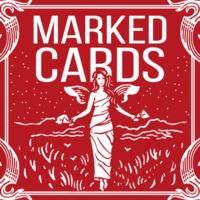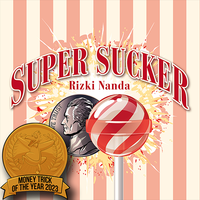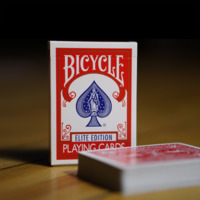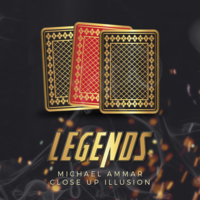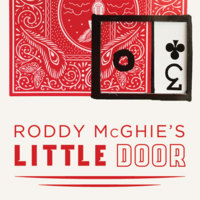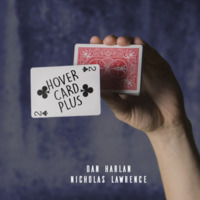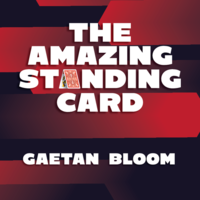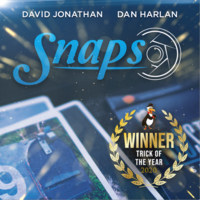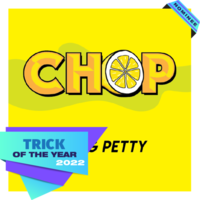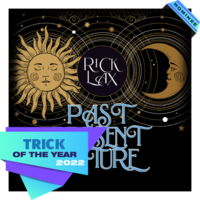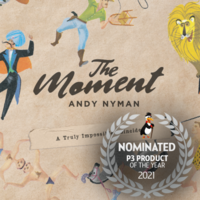
 Just OK
Report this review
Just OK
Report this review
Verified buyer
Pro Privacy ON
(login to see reviewer names)
on April 13th, 2020
I am fascinated by the "Free Will" plot and method combination. However, based on this book, and a
recent Intagram post by a well-liked mentalist, I now realize that many mentalists or magicians view
the plot as "Free Will" divorced from the method, i.e., you have that; I have this; and the other
was not chose / put away.
So the methods start to devolve into gimmicks for multiple outs and perhaps some equivoque to reduce the possible outcomes. I don't see how this is somehow distinct from what came before "Free Will."
For me, the ambiguity of the "Free Will" method is part of the gestalt of the effect. Add gimmickry, great. Multiple outs, fine. A bit of equivoque, sure.
The original effect is so charming, and the book's intention was to reduce it to a common magic trick. It was disappointing to me that the major thesis was how to make the plot of "yours, mine, and object not chosen" come out perfect -- magic, not mentalism.
The book does contain clever methods and gimmicks that I could see myself using elsewhere. But it fails to live up to the charming original "Free Will."
So the methods start to devolve into gimmicks for multiple outs and perhaps some equivoque to reduce the possible outcomes. I don't see how this is somehow distinct from what came before "Free Will."
For me, the ambiguity of the "Free Will" method is part of the gestalt of the effect. Add gimmickry, great. Multiple outs, fine. A bit of equivoque, sure.
The original effect is so charming, and the book's intention was to reduce it to a common magic trick. It was disappointing to me that the major thesis was how to make the plot of "yours, mine, and object not chosen" come out perfect -- magic, not mentalism.
The book does contain clever methods and gimmicks that I could see myself using elsewhere. But it fails to live up to the charming original "Free Will."
Report this comment
mchandaue
Apr 14th 2020 11:19pm
Thanks for taking the time to write the review however I strongly disagree with many of your points. I do agree that many see the plot as divorced from the method because ALL plots are divorced from their methods. Many methods can be applied to the same plot and many plots can be applied to the same method.
As to changing a charming mentalism effect into a mere magic trick I would argue, and many would agree, that the opposite is true. The original is more of a charming magic trick than mentalism. Let’s compare just the first version in the book to the original.
In the original you have three wooden discs which arguably look like magic props. They certainly have no real world excuse to exist. A prediction is placed down and the spectator is asked to choose one for himself, one for the performer and one is placed in the bag. No justification is given for these choices other than the prediction which is somewhat ambiguous and if not very careful in the delivery a little transparent. A charming magic trick.
Let’s look at the first version in this book. The participant provides a sample of their signature and the mentalist gives them a graphology reading based on the signature. Having described their personality the performer explains that based on the signature he is able to predict the decisions the participant is likely to make. He writes a prediction on the card signed by the participant and places three regular items rather than props on the table. The participant rejects one, selects one for himself and a gives one to the performer. The signed prediction is shown to be completely accurate with absolutely no ambiguity. The performer gives the participant a further reading based on those choices explaining why the participant made each choice.
To say that the first is a charming piece of mentalism and the second is a mere magic trick demonstrates a fundamental misunderstanding of mentalism vs magic. Likewise to not be able to divorce the method from the plot indicates a fundamental misunderstanding of the art in general. The participant experience is what is important. The only relevance of the method is whether it is deceptive, practical and its impact on the participants experience. I would say as a general rule that if the effect to the participant is identical an unambiguous prediction is always superior to an ambiguous one.
Whilst the book covers, to quote the review, clever methods, it also covers the justification and framing for the effects. As such whilst each is effect at its core is the free will plot the effects themselves are very different and can be framed as either magic or mentalism. The Rock Paper Scissors variations certainly lean more towards mental magic than mentalism, however the influence and reading based versions lean more towards mentalism.
Mark
As to changing a charming mentalism effect into a mere magic trick I would argue, and many would agree, that the opposite is true. The original is more of a charming magic trick than mentalism. Let’s compare just the first version in the book to the original.
In the original you have three wooden discs which arguably look like magic props. They certainly have no real world excuse to exist. A prediction is placed down and the spectator is asked to choose one for himself, one for the performer and one is placed in the bag. No justification is given for these choices other than the prediction which is somewhat ambiguous and if not very careful in the delivery a little transparent. A charming magic trick.
Let’s look at the first version in this book. The participant provides a sample of their signature and the mentalist gives them a graphology reading based on the signature. Having described their personality the performer explains that based on the signature he is able to predict the decisions the participant is likely to make. He writes a prediction on the card signed by the participant and places three regular items rather than props on the table. The participant rejects one, selects one for himself and a gives one to the performer. The signed prediction is shown to be completely accurate with absolutely no ambiguity. The performer gives the participant a further reading based on those choices explaining why the participant made each choice.
To say that the first is a charming piece of mentalism and the second is a mere magic trick demonstrates a fundamental misunderstanding of mentalism vs magic. Likewise to not be able to divorce the method from the plot indicates a fundamental misunderstanding of the art in general. The participant experience is what is important. The only relevance of the method is whether it is deceptive, practical and its impact on the participants experience. I would say as a general rule that if the effect to the participant is identical an unambiguous prediction is always superior to an ambiguous one.
Whilst the book covers, to quote the review, clever methods, it also covers the justification and framing for the effects. As such whilst each is effect at its core is the free will plot the effects themselves are very different and can be framed as either magic or mentalism. The Rock Paper Scissors variations certainly lean more towards mental magic than mentalism, however the influence and reading based versions lean more towards mentalism.
Mark
Add a comment










